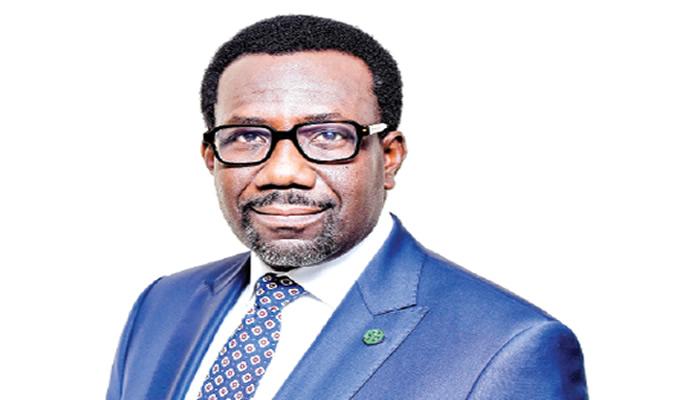By Henry Uche
No more excuses! That is the key message of the National Insurance Commission (NAICOM) to builders and homeowners, as it begins invoking its powers enshrined in the Nigerian Industry Insurance Act (NIIRA) 2025, to tackle the rising scourge of building collapses in Nigeria.
For decades, the haunting images of collapsed buildings, twisted iron rods, crumbled concrete and desperate rescue missions, have become tortuous images on televisions and social media, especially in Lagos.
Each incident leaves behind a trail of grief: families torn apart, livelihoods shattered and communities in mourning. Despite promises and committees, the tragedies kept recurring, fueling anger over government negligence, weak regulation and impunity in the construction sector.
Now, the tide may finally be turning.
With NIIRA 2025, the federal government has effectively declared war on unsafe construction practices. The new law, which empowers the National Insurance Commission (NAICOM) to enforce strict insurance compliance on building projects and public properties, is being hailed as a game-changer in the battle against avoidable disasters.
At the heart of the legislation lies a bold mandate: no building of more than one floor can be constructed without insurance coverage for construction risks. Defaulters risk fines of up to N5 million, imprisonment for up to 12 months, or both.
“A person shall not construct or cause to be constructed any building of more than one floor without insuring his liability in respect of the construction risks that may be caused by his negligence or the negligence of his servants, agents, consultants, or public authority which may result in bodily injury or loss of life to any person or workman working on the site or to any member of the public,” — Section 75 (1), NIIRA 2025.
For many Nigerians, weary of mourning needless deaths, the law is a long-overdue lifeline.
Bloody history
According to stakeholders, Nigeria’s shameful record of building collapses reads like a dark chronicle. From high-rise disasters in Lagos Island to school and church tragedies in other states, hundreds have lost their lives, while many more live with life-altering injuries.
In Lagos alone, which bears the ignoble tag of being the country’s “collapse capital,” cases have run into dozens over the past decade. Weak enforcement, use of substandard materials, corruption in building approvals, and quack contractors have often been blamed.
Civil society groups, professional bodies, and bereaved families have repeatedly called out successive governments for “treating building safety with kid gloves.” Despite task forces and public hearings, little seemed to change, until now.
New law raises stakes
The NIIRA 2025 is unambiguous in its provisions. Section 75 compels insurance on all buildings above one floor before construction can commence, while Section 76 makes it mandatory for every public building—from tenement houses and hostels to schools, hospitals, and shopping complexes—to be insured against hazards such as collapse, fire, storm, earthquake, or flood.
Subsection (3) even goes further by mandating insurers to contribute 0.25% of net premiums into a Fire Services Maintenance Fund, designed to strengthen Nigeria’s underfunded firefighting institutions.
Failure to comply comes with heavy penalties. An owner or occupier of a public building who refuses to insure risks fines of at least N1 million, jail time, or both. Insurers who default on paying their share into the Fire Fund face penalties up to ten times the required amount, and risk deregistration.
NAICOM has also been armed with enforcement powers. The Commission can now demand that building approval authorities seal off any building believed to pose a public risk without valid insurance coverage.
For once, the regulatory hammer appears uncompromising.
Professionals hail move
Among construction experts, relief and excitement are palpable. Ikechukwu Azomaukwu, a Lagos-based consultant, described the new law as “a wake-up call that was long overdue.”
“I have long looked up to a day when building collapse across Nigeria, particularly in Lagos, would be a thing of the past. Building collapses over the years are an indictment on the engineering profession. Though not everyone is guilty, everyone in the value chain shares the blame when a structure goes down,” he told reporters.
Azomaukwu, a structural engineer, warned Nigerians against falling prey to quacks masquerading as professionals. He stressed that insurance will now expose malpractice, as policies will require evidence of compliance with safety standards.
“Building collapse challenges have been denting the image of real professionals in the value chain. From surveyors and architects to site engineers and quality assurance experts, everyone is affected when one bad actor cuts corners. NAICOM has spelt out that no building above one floor can go up without insurance. That is not negotiable anymore,” he said.
He also urged professional bodies to intensify monitoring of construction sites to ensure workers are supervised by registered and licensed experts.
“Insurance is very good. We should embrace it. When we compromise, the consequences can be devastating. Let everyone be on guard and do the right thing at the right time for the safety of everyone,” he implored.
Spotlight on Lagos
No state has attracted more scrutiny than Lagos, where urban density and rapid construction make the risks higher. From the collapse of residential apartments in Ikoyi to tragedies in Mushin and Lekki, the state has been accused of lax oversight and weak enforcement.
The Lagos State Building Control Agency (LASBCA) has often defended its record, insisting that it vets permits, supervises construction stages, and issues certificates of fitness for habitation. But for many Lagosians, the assurances ring hollow.
“The series of building collapses in Lagos is one too many, and the government’s lackadaisical approach has only deepened public anger,” said a civil engineer who asked not to be named.
With NIIRA now in force, LASBCA will have little room for excuses. By law, it must now collaborate with NAICOM to verify insurance compliance before granting approvals or certifying completed structures.
Landlords and occupiers under watch
Perhaps the most controversial provision of NIIRA 2025 is its requirement that landlords and occupiers of public buildings insure their properties. Non-compliance attracts fines of N1 million and up to 12 months imprisonment.
This has triggered anxiety among residents, especially in government-built estates with murky ownership structures.
At a Jakande estate in Lagos, one resident admitted: “We don’t know the fate of these houses we live in. We came through agents whom we don’t even know in case anything happens. We want to know better so we can know what is the right thing to do.”
Across the country, tenants in hostels, tenements, and commercial buildings are equally worried. Many say they are unaware of whether their landlords have complied—or if they are exposed to legal risk.
Observers say this public confusion highlights the need for mass sensitisation campaigns to educate both landlords and tenants about their obligations under the new law.
Need for cultural change
While NIIRA 2025 has been widely welcomed, experts caution that legislation alone cannot eliminate building collapses. Without transparency, accountability, and a cultural shift in how Nigerians view construction safety, enforcement risks becoming another box-ticking exercise.
Corruption, for instance, remains a major concern. From compromised building inspectors to forged insurance certificates, loopholes could emerge if vigilance is not sustained.
But optimists argue that tying building approvals and occupancy permits directly to insurance policies creates a self-policing mechanism. No insurer will underwrite a project that does not meet safety standards, forcing contractors and landlords to clean up their act.
Raising the bar for insurers
Interestingly, the law does not only hold contractors and landlords accountable. Insurers themselves are under strict obligations. By mandating quarterly contributions into the Fire Services Maintenance Fund, the Act ensures that the insurance industry is directly involved in disaster prevention and emergency response.
For NAICOM, this is a chance to strengthen its reputation as more than a regulator, it becomes a public safety watchdog.
Turning point or another false dawn?
Skeptics remain cautious. Nigeria’s history is littered with well-intentioned laws that collapsed under the weight of weak enforcement. The question, therefore, is whether NIIRA 2025 will be any different.
But for professionals like Azomaukwu, the law represents hope.
“Upstairs have more risk factors than downstairs. This law is telling us that the era of excuses is over. We cannot keep losing lives because someone decided to cut corners. It is a wake-up call for all of us,” he said firmly.
The tragedy of building collapse in Nigeria is that most incidents were preventable. The cost of negligence has been measured not just in naira but in human lives—fathers, mothers, children who never returned home.
With NIIRA 2025, the federal government has drawn a line in the sand. For the first time, safety and accountability in construction have been made inseparable from insurance, with teeth strong enough to bite offenders.
If faithfully implemented, the law could mark the beginning of the end of Nigeria’s building collapse nightmare. But if undermined by corruption and complacency, it risks becoming just another statute gathering dust.

















Leave a comment